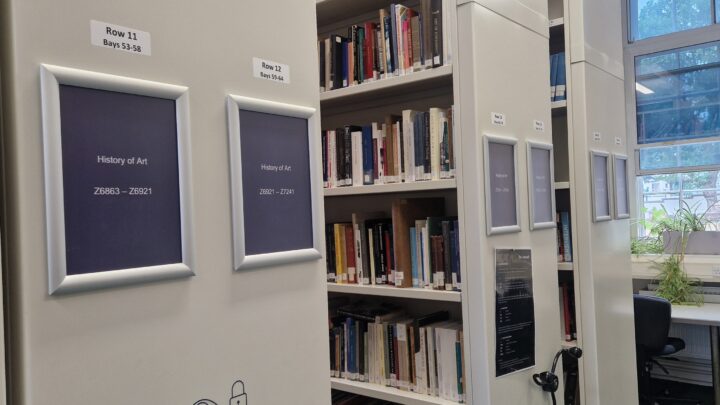For further details on the type of support on offer, please read the ‘FAQs and Guidance’ section, below.
Please do not hesitate to contact the team at wellbeing@courtauld.ac.uk should you have any further questions.
1. Registering with a Doctor
It is important that you are registered with an NHS doctor in London, to ensure that you have access to medical services when you need them.
If you live within the postcodes listed below, you can register at Gower Street Practice, which has a longstanding association with The Courtauld. The practice is located a short walk from Vernon Square and offers a full range of medical services.
EC1, EC2, EC3, EC4, N1, N4, N5, N6, N7, N8, N10, N11*, N13, N15, N16, N17, N19, N22, NW1, NW3, NW5, NW6*, NW8, SW1, SW3, SW5, SW6*, SW7, SW10*, W1, W2, W8, W9, W10*, W11*, W14*, WC1, WC2.
*Parts of these postcode areas fall outside our area (there are also other limited exceptions).
If you do not live in the postcodes listed above, you can still attend the practice for emergencies.
Gowerstreetpractice.org.uk
Gower Street Practice
20 Gower Street, London
WC1E 6DP
Tel: +44 (0)207 467 6800
Local emergencies
The nearest Accident and Emergency departments to The Courtauld are:
University College London Hospital, 235 Euston Road, Bloomsbury, London NW1 2BU
St Thomas’ Hospital, Lambeth Palace Road, Bishop’s London, SE1 7EH.
In an emergency, dial 999. This emergency number will get you the Police, the Fire Brigade, the Paramedics, the Coast Guard and Search and Rescue.
If you live outside of the above-listed postcode areas, you can still receive medical care. Use the below link to search for a GP close to where you live:
GPs: about GP services – find and register with a local GP.
Useful information/ links:
The NHS App – owned and run by the NHS, this app is a simple and secure way to access a range of NHS services on your smartphone or tablet.
Hospitals: about NHS hospitals – find out more about going to the hospital, staying in the hospital, and being discharged from the hospital.
2. Accessing other NHS services
Links to information on other services available on the NHS are listed below:
Dentists: find out more about NHS dental services, including how to find an NHS dentist and how much treatment costs can be.
Pharmacies: find out more about how pharmacists can help you with medical advice and medicines.
Mental Health Services: find out more about NHS mental health services.
Sexual health services: find out more about NHS sexual health services.
Opticians: find out more about opticians and what happens when you get your eyesight tested.
Visiting or moving to England: find out more about healthcare if you’re planning to visit or move to England.
NHS COVID app: find out more about Covid-19 by using this app. You must be aged 13 and over and registered with a GP surgery in England to use the app.
3. Out of hours services
If you are in crisis or just need someone to talk to for advice, guidance and support outside of normal office hours, consider the following organisations:
Samaritans
If you are experiencing emotional distress, including thoughts of suicide, the Samaritans provide a 24-hour confidential listening service.
Website: www.samaritans.org
Email: jo@samaritans.org
Telephone: 116 123
Nightline
Run for and by students, Nightline provides the opportunity to talk to or instant message someone about anything you like. It is an independent, non-judgmental listening, support, and information service with no political, religious or moral bias.
Confidentiality is assured and you do not have to give your name.
Website: http://nightline.org.uk/
Email: listening@nightline.org.uk
T: +44 (0)207 631 0101
4. Support if you are dissatisfied with your experience at the Courtauld
Q: I’m unhappy with the grade I received on an assignment. Can I have my work remarked?
A: No. We do not have work re-marked. Our academic staff receive regular teacher training and are experienced examiners/markers. We also have processes in place to ensure that marks are awarded according to marking criteria that have been agreed upon via the Teaching and Learning Committee (TLC). Moreover, each year we hire External Examiners to look through how and what we have taught during the academic year; part of the External Examiners’ role is to look at the marks and feedback that we provide to students and establish whether what we are doing is accurate, consistent and fair. Upon receiving our External Examiners’ reports, the institution then has a Quality Assurance Meeting to ensure that all our processes and procedures are of a high standard and that we make any improvements to how we work, based on the recommendations and best practice suggested by the External Examiners. As we have a number of safeguards in place, students should rest assured that their work is marked fairly and their marks are indicative of their level of academic achievement.
Q: I don’t like the class I’ve been assigned to. Can I change?
A: No. We don’t allow students to change classes.
In BA1, students are assigned classes by the relevant Programme Administrator for their cohort. Students cannot switch classes as this has implications on student numbers and on the timetable. Moreover, we need to ensure that class sizes are relatively equal, especially while social distancing measures are mandated by the UK government. As some classes are more popular than others (typically the Modern and Contemporary classes), we can’t have the majority of students taking the popular ones and minimal numbers of students in the others.
In BA2, BA3 and at GD, students are permitted to state a preference for the classes they would like to take. However, no student is guaranteed to be allocated to any of their preferred classes.
The MA course works differently. If an MA student is unhappy with what they are studying, they should speak to their Programme Administrator for guidance in the first instance.
Q: I have an issue with something in one of the classes I’m taking. What do I do?
A: Any concerns a student has with their class should be discussed, informally, with the class teacher in the first instance. In the event that a student would like to escalate their concerns, they should then speak to their Personal Tutor and Programme Administrator. If a further escalation is required, their Personal Tutor and Programme Administrator will advise the student of the complaints process.
Q: I would like to make a formal complaint. How do I go about doing this?
A: In all cases, we ask that students try to resolve any issues they may have, informally. A student can speak to any number of staff for guidance when dealing with any issues they may have (Personal Tutor/ Programme Administrator/ Students Union). If the issue cannot be informally resolved, then a student may make a formal complaint, in writing, to the Academic Registrar via Academic.Registry@courtauld.ac.uk.
Kindly note that students may be asked to try and informally resolve their issue before the Academic Registrar is able to respond to their complaint. Students should not write to the Dean or the Director without first speaking to their Personal Tutor/ Programme Administrator/ Student Union. SAS staff will escalate complaints on behalf of a student. Any complaints brought directly to the Dean or Director will be re-directed to the Academic Registrar, first. The Full Student Complaints Policy is on The Courtauld website under Student Policies and this gives full details of the steps to resolve any complaint. Students are asked to complete a form (on the website) detailing their complaint in full and what action they would like to see as a resolution.









